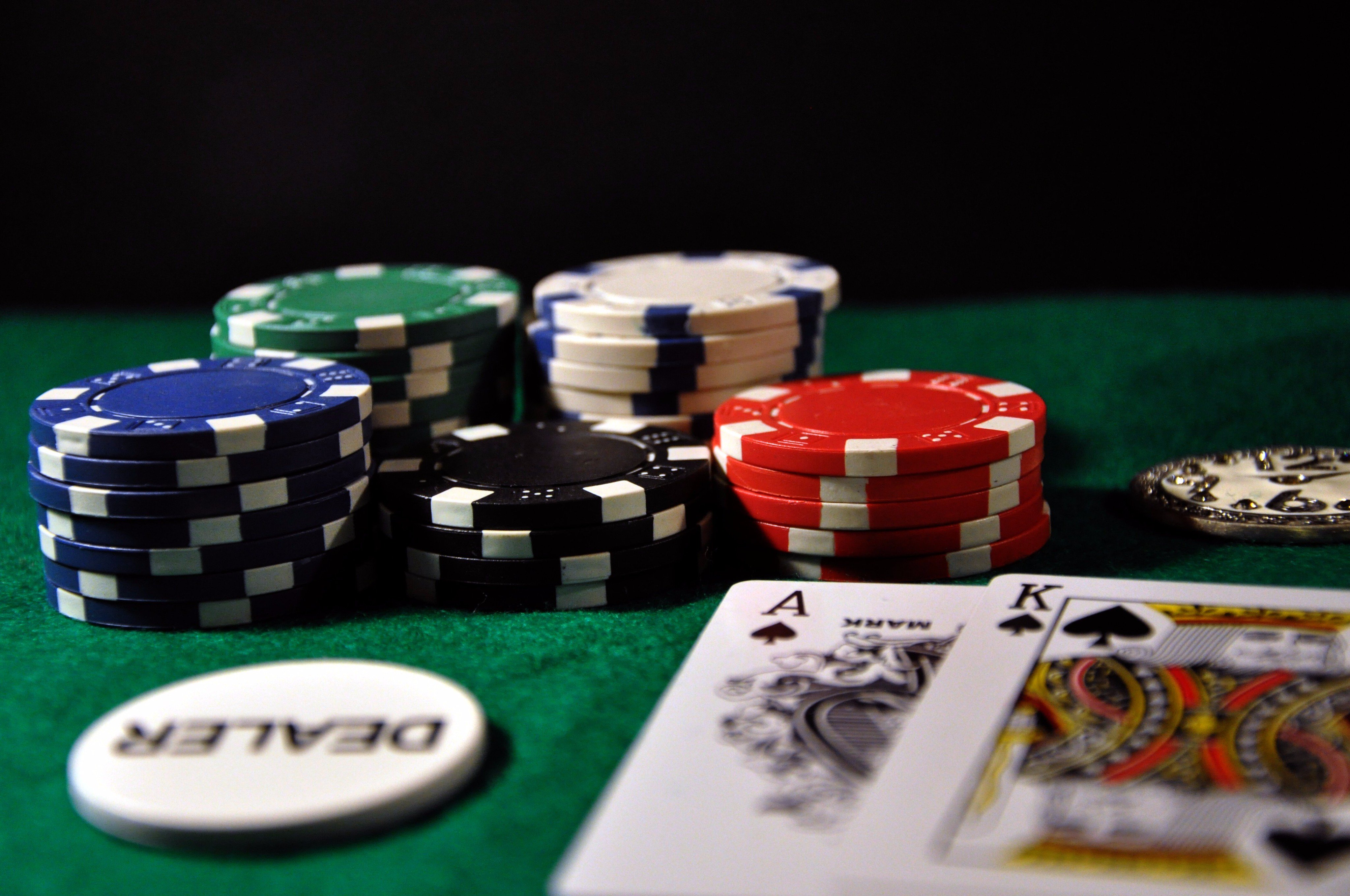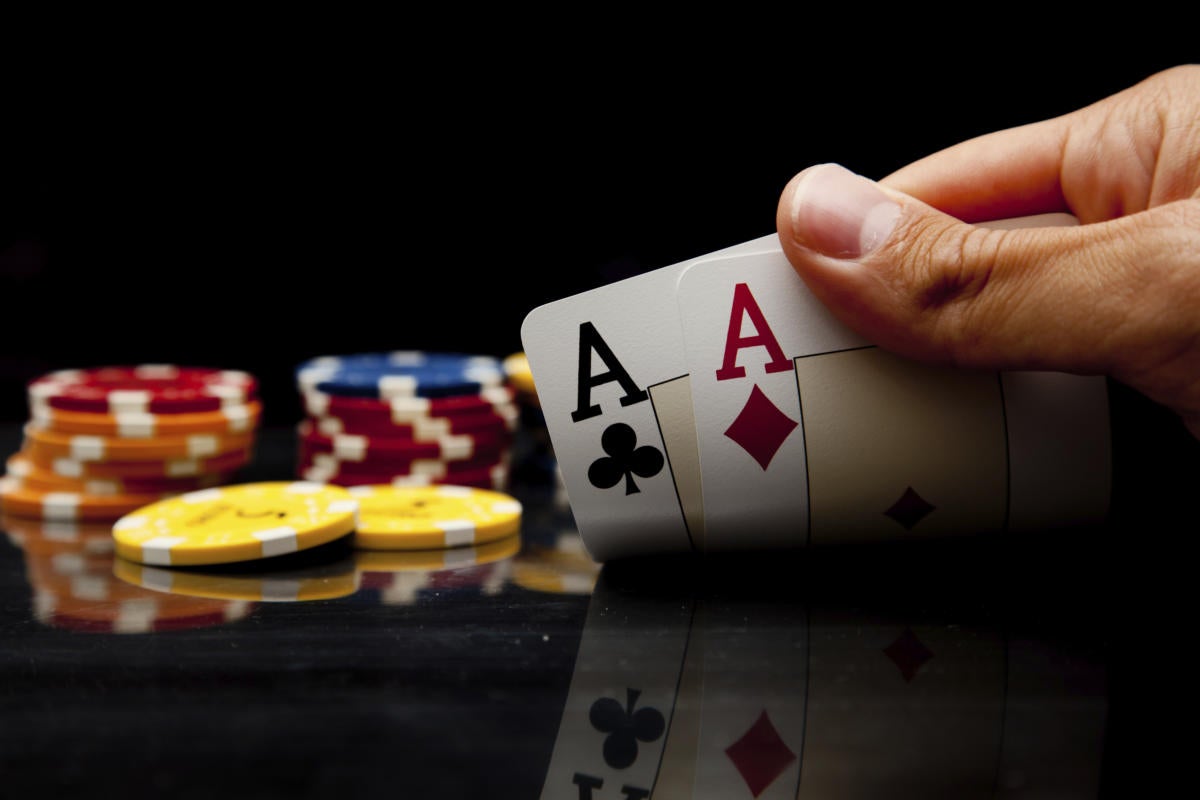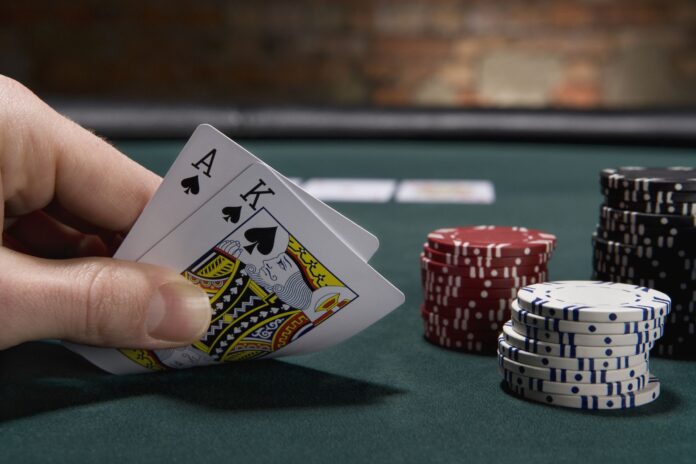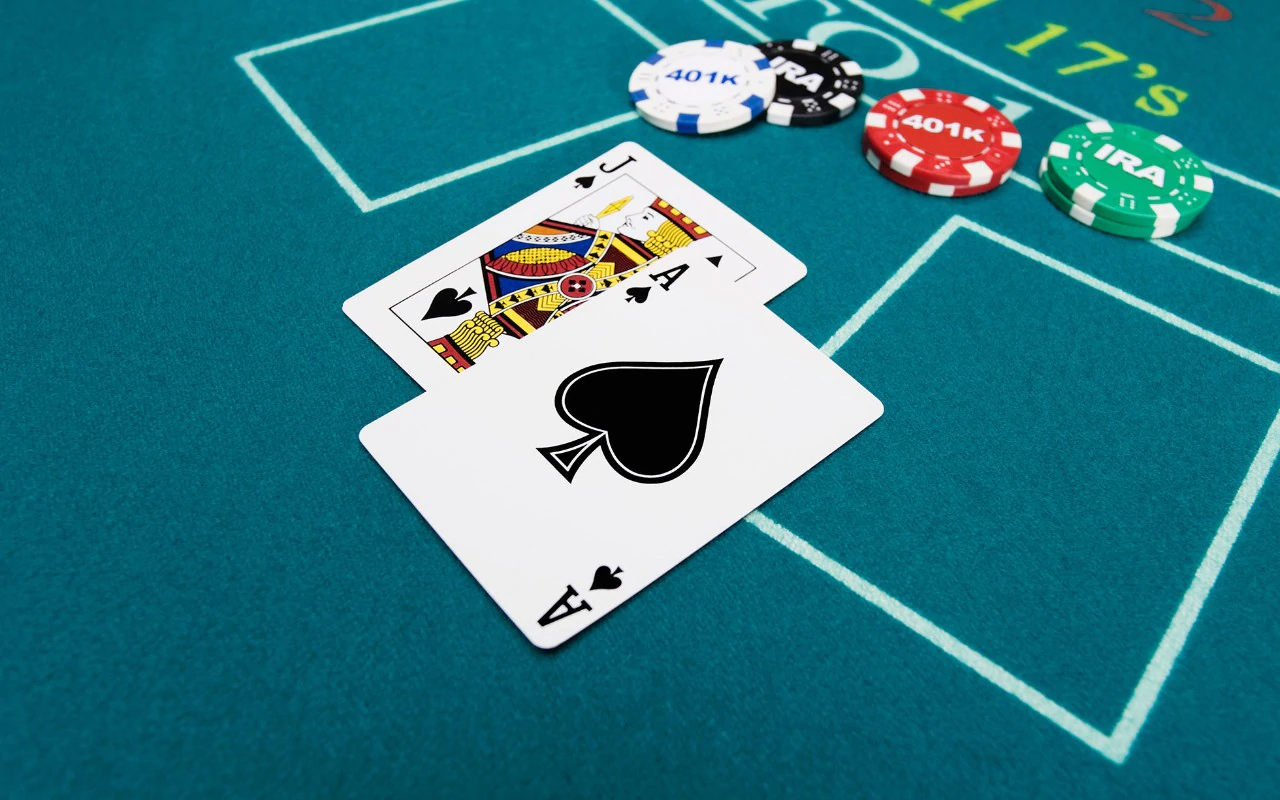Introduction
What Is The House Advantage In Blackjack: In the world of casino gambling, blackjack has long been a popular and intriguing game. As players aim to beat the dealer’s hand and achieve a total closest to 21 without exceeding it, they face an opponent with a slight advantage known as the house advantage.
The house advantage in blackjack refers to the statistical edge held by the casino over the players. It represents the percentage of each player’s bet that the house expects to retain as profit in the long run. This advantage is a result of the game’s rules and payout structure, carefully designed to give the house a slight mathematical edge.
Several factors contribute to the house advantage in blackjack. The rules dictate that the player must act before the dealer, which means players can lose their bets by busting before the dealer even plays their hand. Additionally, the payout for a blackjack (a natural 21) is typically set at 3:2, while other winning hands are paid at even money. These factors, combined with the dealer’s actions and the composition of the cards, result in the house maintaining an advantage over time.
However, it’s important to note that the house advantage is not insurmountable. Skilled players who employ optimal blackjack strategy and advantage play techniques, such as card counting, can reduce the house advantage and potentially gain an edge over the casino. By making informed decisions based on the cards in play, players can improve their chances of winning and offset the inherent advantage of the house.

Why does the house have an advantage in blackjack?
So, why does the casino have an edge in blackjack? Casinos have an edge in blackjack because when players bust, the dealer doesn’t have to play their hand. Although that might not seem like a big deal, if you play with the same dealer long term, you’ll lose 53.92% of the time.
The house has an advantage in blackjack due to a few key factors:
1. The Rules of the Game: The rules of blackjack are structured in a way that gives the house a mathematical edge. One of the main rules is that the player must act before the dealer, which means the player may bust (go over 21) and lose their bet before the dealer even plays their hand. Additionally, if both the player and the dealer bust, the player loses their bet first. These rules, among others, give the house a slight advantage over time.
2. The House’s Profit Margin: In blackjack, players are paid out at a rate of 1:1 for a winning hand, except for a blackjack (a natural 21), which is typically paid out at 3:2. However, when the player busts, they lose their bet entirely. This slight difference in payout ratios creates an imbalance where the house’s profit margin is higher in the long run.
3. The Deck Composition: The house advantage can also be influenced by the number of decks used in the game. Most blackjack games are played with multiple decks, usually 6 or 8. This increases the house edge because it makes card counting and strategy based on card composition more challenging for the player. With fewer favorable cards remaining in the deck, the house has a higher probability of winning.
4. The Dealer’s Actions: The dealer’s actions, particularly the requirement to hit on certain hands (usually 16 or less) and stand on others (usually 17 or more), are determined by specific rules that give the house an advantage. These rules are consistent and do not involve any decision-making on the part of the dealer, reducing the chances of the house making errors or deviating from optimal strategy.
What is advantage blackjack?
Someone who practises advantage gambling is often referred to as an advantage player, or AP. Unlike cheating, which is by definition illegal, advantage play exploits innate characteristics of a particular game to give the player an advantage relative to the house or other players.
Advantage blackjack, also known as professional or advantage play blackjack, refers to a strategy or approach where skilled players aim to gain an edge over the casino and turn the odds in their favor. These players rely on their knowledge, skills, and techniques to gain a long-term advantage in the game.
Advantage blackjack techniques often involve card counting, which is the practice of keeping track of the ratio of high to low cards remaining in the deck or shoe. By monitoring the composition of the cards, skilled players can adjust their bets and playing decisions to capitalize on situations where the player has a higher probability of winning.
Card counting is based on the principle that high cards (10s and face cards) are beneficial to the player, as they increase the likelihood of getting blackjack and improve the chances of beating the dealer. Conversely, low cards are advantageous to the dealer. By maintaining a running count of the cards, players can determine when the deck becomes favorable for them and increase their bets accordingly.
Advantage blackjack players often use additional techniques and strategies in combination with card counting to enhance their edge. These may include shuffle tracking (predicting the clumping of high or low cards during the shuffle), hole carding (exploiting the dealer’s exposed card), and optimal betting strategies.
Advantage blackjack requires a significant amount of skill, practice, and discipline. It is not a guaranteed method to win in every session but rather a strategy that aims to gain an edge over the long run. Players interested in advantage play techniques should thoroughly study and understand the principles involved and be prepared to invest time and effort to develop their skills.
What percentage of luck is blackjack?
Other classic card games that are considered more skill-based than luck-based include Rummy (38% vs 24%), Bridge (36% vs 9%), and Cribbage (26% vs 11%). More than two in five Americans (44%) consider the casino card game, Blackjack, a game of luck over skill (35%).
The game of blackjack involves both skill and luck. While luck plays a significant role in short-term outcomes, the game’s outcome can be influenced by strategic decisions made by the player. In the long run, skillful play can increase the chances of winning.
The percentage of luck versus skill in blackjack is challenging to quantify precisely. However, it is commonly accepted that luck contributes to around 30% to 50% of the outcome in any given hand. This estimation takes into account factors such as the initial distribution of cards, the dealer’s upcard, and the randomness of subsequent cards dealt.
It’s important to note that even with skillful play, the house (casino) maintains a small edge in blackjack due to the rules of the game. However, by employing optimal strategy and making informed decisions based on the cards dealt, players can minimize the house edge and improve their chances of winning over time.
What is the house probability in blackjack?
The odds of winning at blackjack can be as high as 42.22%. However, this does not mean the house wins 57.78% of the time. That’s because there is a third possible result – a push. An average of 8.48% of blackjack games end in a push, leaving the probability of a loss at 49.10%.
The house probability in blackjack refers to the statistical advantage or edge that the casino (house) has over the players. It represents the average percentage of each player’s bet that the house expects to win over the long run.
The specific house probability in blackjack depends on several factors, including the game rules, the number of decks used, and the player’s strategy. However, in a typical blackjack game with standard rules, where the dealer stands on 17 and blackjack pays 3:2, the house probability is estimated to be around 0.5% to 1%.
This means that for every $100 wagered by players, the house expects to retain an average profit of approximately $0.50 to $1.00. Keep in mind that this is an average figure calculated over a large number of hands, and individual sessions can deviate significantly from this expectation.
The house probability in blackjack is determined by the rules that give the house a slight advantage over the players. These rules include the player’s obligation to act before the dealer, the loss of the player’s bet when both the player and the dealer bust, and the payout ratio of 3:2 for blackjack.
However, it’s crucial to approach blackjack with the understanding that the house still holds an edge in the long run. While players may experience short-term wins and losses, the house probability ensures that, over time, the casino will retain a small percentage of the total wagers placed by players.

How do you calculate house advantage in blackjack?
The house edge is half of one percent so if we take $100 million and multiply it by . 005 we get $500,000 which is how much the casino expects to make off of you in the long run if you continue to bet $100 a hand. So essentially each bet you make is worth about 50 cents to the casino.
The house advantage in blackjack can be calculated by comparing the expected loss of a player’s bet to the initial bet amount. It represents the percentage of each player’s bet that the house expects to retain as profit in the long run.
To calculate the house advantage in blackjack, you need to know the specific game rules and the player’s strategy. The following steps outline a general approach:
1. Determine the specific game rules: The house advantage can vary depending on the rules of the blackjack variant being played. Factors to consider include the number of decks used, whether the dealer hits or stands on a soft 17, the payout for blackjack, and any additional rules specific to the game.
2. Identify the basic strategy being used: Basic strategy is a set of optimal playing decisions that maximize the player’s chances of winning based on their hand and the dealer’s upcard. The house advantage calculations assume that the player is following basic strategy.
3. Use a blackjack house advantage calculator or table: There are various resources available, including online calculators and tables, that provide the house advantage for different blackjack rules and strategies. These tools can save time and provide accurate calculations based on the specific game conditions.
4. Compare the expected loss to the initial bet: Once you have the house advantage percentage, you can calculate the expected loss per bet. For example, if the house advantage is 0.5%, the expected loss per $100 bet would be $0.50. This means the house expects to retain, on average, $0.50 of each $100 wagered by players.
Calculating the house advantage requires a deep understanding of the specific rules and strategies used in the game. If you’re not familiar with the calculations or want precise values for a particular blackjack variant, it’s recommended to refer to reliable sources or consult experts who specialize in blackjack mathematics.
Does House win ties in blackjack?
Keep in mind that the object is to get 21 or as close as possible without going over 21 total. If your hand is closer to 21 than the dealer’s hand, you win. If your hand is less than the dealer’s hand, the house wins. If you tie the dealer’s hand or the dealer draws 22, you “push” (nobody wins or loses).
In most traditional blackjack games, the house does win ties, resulting in a “push” or “standoff.” When the player and the dealer both have hands of equal value, such as a total of 17, 18, 19, or 20, it is considered a tie. In these situations, the player neither wins nor loses the bet and receives their original wager back.
The rule that the house wins ties gives the casino a slight statistical advantage over the player. It is one of the ways the casino ensures a profit in the long run. By winning ties, the house maintains an edge and increases its overall odds of profitability.
However, it’s important to note that there are variations of blackjack where the rules differ regarding ties. One such variant is “Blackjack Switch.” In Blackjack Switch, if both the player and the dealer have a total of 21, it is not considered a tie. Instead, it is treated as a regular win for the player, giving them an advantage in this specific situation.
Ultimately, while the house does win ties in most traditional blackjack games, understanding the rules and applying a sound blackjack strategy can still increase a player’s chances of success and enjoyment at the blackjack table.
What does the term “house advantage” mean in the context of blackjack?
The house advantage, also known as the casino advantage or edge, is the mathematical advantage that the casino holds over the players in a casino game. In the context of blackjack, it refers to the statistical likelihood that the house will win more hands than the players over an extended period.
The house advantage is calculated based on several factors, including the specific rules of the game, the payout ratios, and the strategies used by both the players and the dealer. These factors are designed to give the house a slight mathematical edge, ensuring that the casino profits in the long run.
The house advantage in blackjack is typically expressed as a percentage or a decimal. For example, if the house advantage is 0.5% or 0.005, it means that the house expects to retain, on average, 0.5 units of each unit wagered by players.
Can skilled players reduce the house advantage in blackjack?
Yes, skilled players can reduce the house advantage in blackjack. While the house always maintains a slight mathematical edge in the game, players who employ optimal strategies and advantage play techniques can improve their chances of winning and narrow the gap between themselves and the casino. Here are some ways skilled players can reduce the house advantage:
1. Basic Strategy: Following basic strategy, which is a set of optimal playing decisions based on the player’s hand and the dealer’s upcard, minimizes the house advantage. Basic strategy guides players on when to hit, stand, double down, or split their hand based on statistical probabilities.
2. Card Counting: Skilled players can use card counting techniques to keep track of the ratio of high to low cards remaining in the deck. By doing so, they can adjust their bets and playing decisions to take advantage of situations when the deck is favorable, thus reducing the house advantage.
3. Bankroll Management: Effective bankroll management ensures that players are wagering reasonable amounts relative to their overall budget. By properly managing their bankroll, players can minimize losses during unfavorable situations and maximize their bets during advantageous conditions.
4. Game Selection: Choosing blackjack games with player-friendly rules and lower house edges can help reduce the overall house advantage. Variations like single-deck blackjack or games that allow doubling down after splitting can be more favorable for players.

Conclusion
The house advantage in blackjack is a fundamental aspect of the game that players should be aware of. It represents the statistical edge that the casino holds over the players, ensuring that, on average, the house retains a small percentage of each player’s wager in the long run. This advantage is built into the rules, payout structure, and the dealer’s actions.
While the house advantage gives the casino an overall mathematical edge, it’s important to remember that individual players can still experience short-term wins and losses due to the inherent variability of the game. Skilled players who utilize optimal strategies and advantage play techniques, such as card counting, can reduce the house advantage and potentially gain an edge over the casino.
It’s crucial to approach blackjack as a form of entertainment and gambling activity, with the understanding that the casino holds a small statistical edge. Responsible gambling practices and maintaining a balanced perspective on both winning and losing outcomes are key.
Ultimately, while the house advantage in blackjack may seem daunting, it doesn’t diminish the enjoyment and excitement the game offers. With a combination of skill, knowledge, and a bit of luck, players can make the most of their blackjack experience and strive for profitable sessions while appreciating the entertainment value the game provides.










